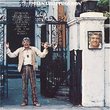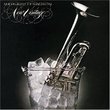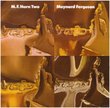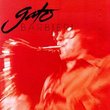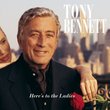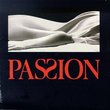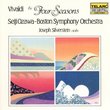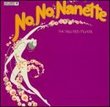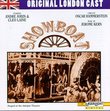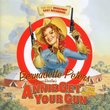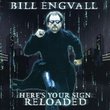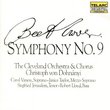| All Artists: Maynard Ferguson Title: Carnival Members Wishing: 4 Total Copies: 0 Label: Wounded Bird Records Original Release Date: 1/1/2003 Re-Release Date: 4/22/2003 Genres: Jazz, Pop Styles: Smooth Jazz, Bebop Number of Discs: 1 SwapaCD Credits: 1 UPC: 664140548022 |
Search - Maynard Ferguson :: Carnival
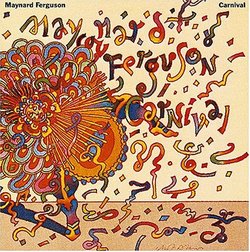 | Maynard Ferguson Carnival Genres: Jazz, Pop
Maynard Ferguson has been considered one of the premier jazz trumpet virtuosos for over 4 decades! He has a cult following of trumpet players all over the world. He has released numerous albums over those years, his mos... more » |
Larger Image |
CD DetailsSynopsis
Album Description Maynard Ferguson has been considered one of the premier jazz trumpet virtuosos for over 4 decades! He has a cult following of trumpet players all over the world. He has released numerous albums over those years, his most popular being on the Columbia label in the 70's and 80's. Carnival was originally issued in 1978 and reached # 113 on the Billboard charts. This album features his interpretation of the jazz classic 'Birdland' as well as 7 other tracks. This album is making its worldwide CD debut on Wounded Bird Records. 2003. Similar CDs
Similarly Requested CDs |
CD ReviewsMaynard--Bless Him! GenesiusRedux | Chillin' at my place.... | 07/20/2010 (4 out of 5 stars) "The one thing you'd have to say about Maynard, whatever you may feel about his talent and his taste, is that he never stood still. He remained throughout his life one of the most forward-thinking and moving big band leaders. And whatever the size of his band, it was always a BIG band.
A lot of nonsense has been said here regarding Maynard's musical "genius" and his superhuman qualities. This is also forgivable because Maynard was above all a man who loved life and loved music and loved playing. Live, he could get away with the most extraordinarily ridiculous postures because, bless him, he believed them! To call him to account for this silliness would be sort of like tearing apart the idea of Santa Claus. Whatever you may think in your heart, you just don't do it. Less forgivable, I think, are the nasty-minded critics who attack Maynard for almost everything from poor technique to tastelessness in playing and costume and his open commercialism. All of which might be true. But, you know, this guy was the Liberace of the trumpet. He had fun, and he invited his audiences to join in the fun with him. It didn't matter if you were a hot player or a poor player or could play at all or if you were super cool or if you were a dork. With Maynard the party never stopped. And you were invited, Sparky. This is Maynard's party album par excellence. Joyous, exuberant, and affirmative in every respect. There are moments on the album that are cheesy, moments that are dramatic, moments that are hot, moments that are ridiculous, but not a single one that is less than pure fun. The charge of commercialism leveled against Maynard, often framed in terms of his desire to appropriate popular music for its own sake, is simply off the mark. The tunes here cannot be called commercial, because even in his most apparently commercial choices, he crosses over and combines musical forms. He is at his most experimental here. The opening number, "Carnival," mostly Brazilian-inspired, is a combination of a number of Latin forms, from the flamenco guitar and obligato trumpet opening to streetlike Brazilian piccolo, straight into its transformation into American disco with a samba-esque bass line, and then just as suddenly into funk and back to free-moving disco again. That opening announces what the album will be, and the rest of the numbers follow out the theme. The second piece is Maynard's version of the Earth Wind and Fire classic "Fantasy," which is probably the most conformable to the feeling of musical experimentation and overlap. Here, the band moves back and forth between fusion-style neo-chamber music to deep funk, again as if searching for the free space of smooth disco. In the middle of the piece, trumpeter Joe Mosello plays a lovely tongue-in-cheek interlude on the piccolo trumpet, followed by the first of many uses of a backup group of female singers who open the way for more open singing of the whole band. Alas, Maynard elects to end with the sloppy device of a fadeout, which happens over and over again on this album (in fact, quite frequently in this period of the band in general). "Theme from Battlestar Gallactica" (arranged by trombonist Nick Lane) is probably the most egregiously silly, with its driving disco beat, the backup singers crying out "Gallactica" until listeners of "taste" want to throttle them. What they are missing, of course, is that the tongues of the band are firmly planted in their cheeks. But the song is at least partially redeemed by Bob Millitello's very nice flute solo (Millitello was Maynard's flute guy in the late 70s, recalling his earlier work in the 60s with the great Joe Farrell). Again the fade out works its annoying magic. The first side of the original album ended with a Slide Hampton arrangement of Ned Washington's "Stella By Starlight," which originally featured Hampton's incredibly skilled trombone. Here, Hampton is succeeded by the capable Phil Grey. Grey is no Hampton, but he does rock when the ballad abruptly changes gears with a brief and very fast mambo introduction into open swing. Mike Migliore picks up the tempo at the end with a lightning bebop style alto solo that would make Charlie Parker proud and leads directly into Maynard's stratospheric reiteration of the head which leads to a deliberately non-romantic ending which again defeats traditional expectations of how a ballad should be wrapped up (one thinks here of something like Charlie Parker's mischievous "Country Gardens" style ending of the beautiful ballad "Lover Man" which seems to wink at the listener, reminding us of how easily a musical form can shift our mood). Side B opens with "Birdland," to this listener's ear the most exuberant of the tunes on the album. If you can listen to it without wanting to dance and join the band's claps, you have no soul. If I had a theme song, this would be it (it was on my MySpace page for the longest time and, come to think of it, still is). My one complaint is, again, the lazy fade-out. The rendition of "Baker Street" is, I think, the most incongruous arrangement on the album. It sounds like arranger Biff Hannon (who also plays the electric pianos and synthesizers on the album) didn't quite know how to handle the (then) fairly recent Gerry Rafferty hit. Mike Migliore does a nice job with the alto solo that was originally created by Raphael Ravenscroft and which led to the celebrated Baker Street phenomenon in saxophone sales in the late 70s. When the album first came out, I hated "How Ya Doin' Baby." It's a straight out funk number that didn't seem to fit with the rest of the pieces. Listening to it again, I'm more indulgent. What strikes me this time is the tightness of the band and the cleanness of the attacks, especially of the reeds. I'm still not sold on the piece, but it's not a monstrosity. Alas, the closing number, "Over the Rainbow" sounds like it could have been written twenty minutes before the recording session. It features Maynard's trumpet on the melody with an attempt to use the band and strings to build excitement. I say an attempt, because every time the music seems to build, the tension strangely drops out. The strings behind Millitello's excellent flute solo make it sound more restrained than it is, and even the return of the band at the end of the solo does not allow Millitello's characteristic build to lead to the expected shout chorus. The very end, which features Maynard's high screams with little other backing than the Fender Rhodes (which Hannon voices with annoyingly close triads) makes even the trumpet sound weak. And again--the fadeout. That's the low-down for the whole album. As an album, it stands up to anything else Maynard was producing in this period and, as I said, the feeling throughout is experimentation and joy and good humor. This album is absolutely worth listening to. What you hear, I think, is what you bring to it." |

 Track Listings (8) - Disc #1
Track Listings (8) - Disc #1